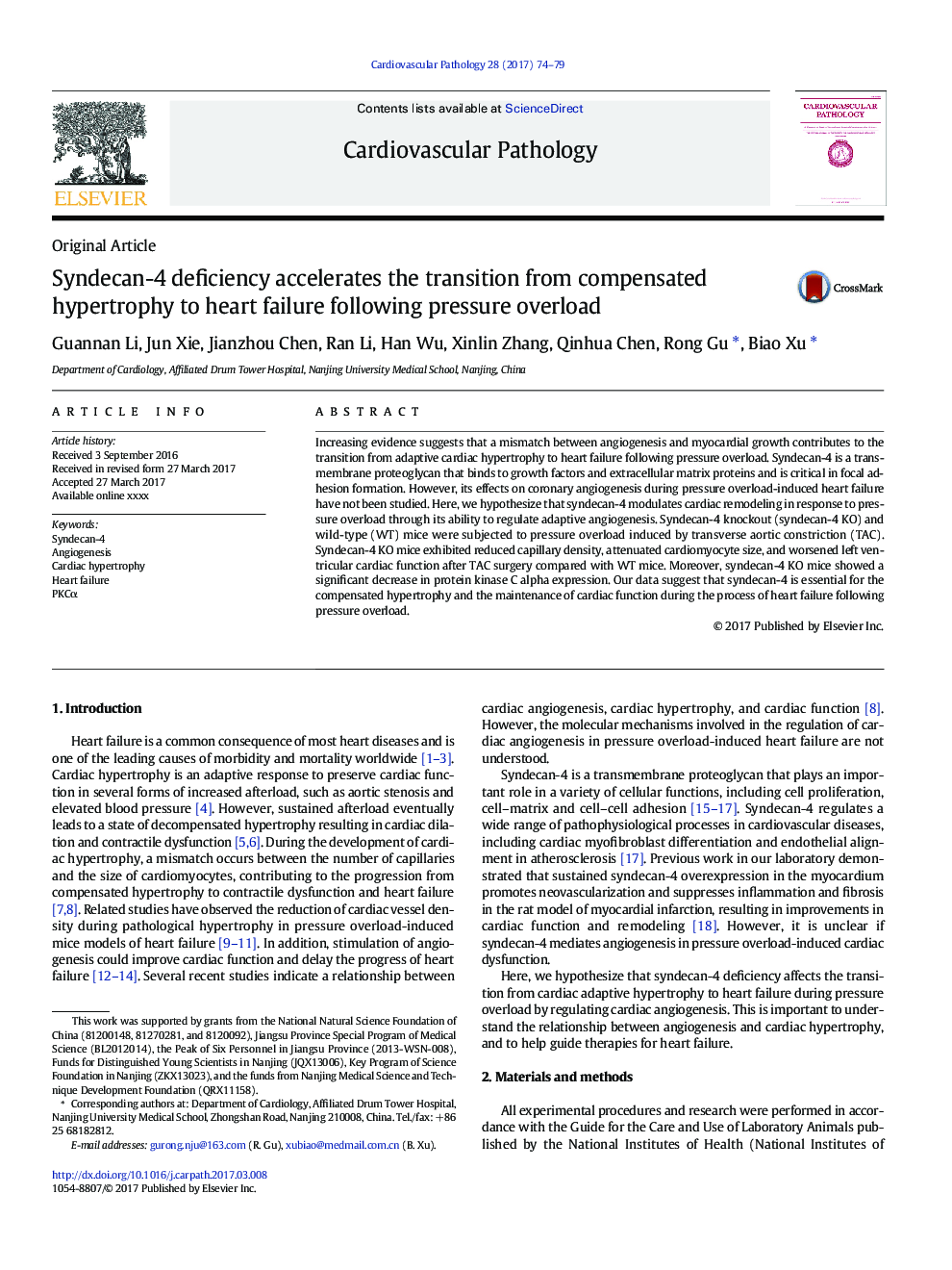| Article ID | Journal | Published Year | Pages | File Type |
|---|---|---|---|---|
| 5600112 | Cardiovascular Pathology | 2017 | 6 Pages |
Abstract
Increasing evidence suggests that a mismatch between angiogenesis and myocardial growth contributes to the transition from adaptive cardiac hypertrophy to heart failure following pressure overload. Syndecan-4 is a transmembrane proteoglycan that binds to growth factors and extracellular matrix proteins and is critical in focal adhesion formation. However, its effects on coronary angiogenesis during pressure overload-induced heart failure have not been studied. Here, we hypothesize that syndecan-4 modulates cardiac remodeling in response to pressure overload through its ability to regulate adaptive angiogenesis. Syndecan-4 knockout (syndecan-4 KO) and wild-type (WT) mice were subjected to pressure overload induced by transverse aortic constriction (TAC). Syndecan-4 KO mice exhibited reduced capillary density, attenuated cardiomyocyte size, and worsened left ventricular cardiac function after TAC surgery compared with WT mice. Moreover, syndecan-4 KO mice showed a significant decrease in protein kinase C alpha expression. Our data suggest that syndecan-4 is essential for the compensated hypertrophy and the maintenance of cardiac function during the process of heart failure following pressure overload.
Related Topics
Health Sciences
Medicine and Dentistry
Cardiology and Cardiovascular Medicine
Authors
Guannan Li, Jun Xie, Jianzhou Chen, Ran Li, Han Wu, Xinlin Zhang, Qinhua Chen, Rong Gu, Biao Xu,
